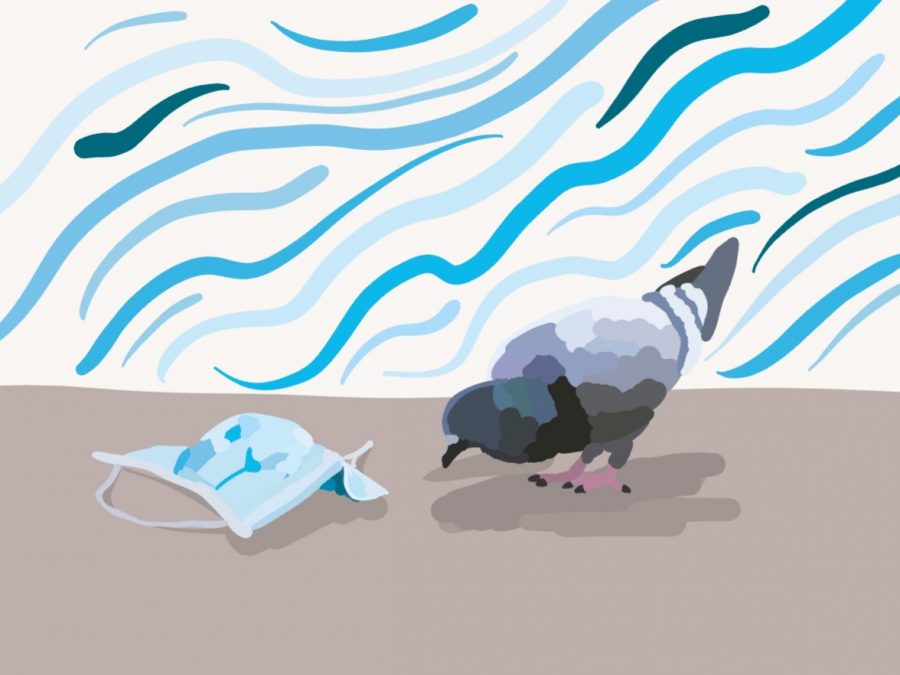As we enter the seventh month of COVID-19 in the United States, face masks continue to be a requirement in most public areas. However, while we're masking up, we must remember our environmental impact on the planet, especially when we use surgical masks.
Surgical masks are single-use face coverings that are designed to act as a barrier to sneezes or other potential exchanges of germs. While these masks are a popular mode of face coverings, they are made of several types of plastic.
According to estimates by the World Health Organization, “89 million masks are required for the COVID-19 response each month.” If every person uses several surgical masks a week, this accumulated plastic could be especially detrimental to our planet.
Plastics, once introduced to the environment, can take hundreds of years to decompose. Surgical masks, in particular, are dangerous choking hazards for animals in the oceans who mistake the masks for food.
These masks have already begun to accumulate in oceans. Activist Laurent Lombard of the French ecological conservation group Opération Mer Propre wrote on his Facebook page that “soon we’ll run the risk of having more masks than jellyfish in the Mediterranean.”
A little closer to home, the blue surgical masks are a regular sight on every street corner and alleyway in West Campus.
Finance senior Hassaan Monir, who lives in West Campus, recounted his experiences seeing the surgical masks littered on the streets.
“I’ve seen them all around West Campus in places where they shouldn’t be,” Monir said. “Construction sites, missed trash cans and also around residential areas. I feel like a lot of people lose them on their way in or out.”
Additionally, the littered surgical masks can be especially harmful if they still carry the last user’s germs, which can make their way into new hosts.
Even if students responsibly dispose of the surgical masks when they’re done using them, the materials prevent the masks from being properly recycled. This aids in an accumulation of trash that has major negative impacts on the environment.
Neuroscience senior Pranav Jayaraman said it is currently impossible to recycle masks on campus.
“The main reason why is because masks are multi-material, so they wouldn’t go in our regular recycling stream,” said Jayaraman, a project leader with the Half-Pint Prairie project in the Campus Environmental Center.
To reduce our environmental footprint and the spread of germs, students should consider other more sustainable options, such as the cloth mask.
Cloth masks, which can be washed and decontaminated each day, can reduce the environmental impact of the pandemic. This means the harmful and polluting plastic waste will be diverted from the oceans and the earth, saving thousands of animals, plants and humans.
Also, it’s ultimately cheaper to buy a cloth mask. Reusing a few masks saves more money than buying a new package of surgical masks each month.
However, it’s important to recognize that cloth masks can vary in effectiveness depending on the make and the material.
According to the CDC, “filtration effectiveness of cloth masks depends on many factors, such as the thread count, number of layers, type of fabric and water resistance.”
When selecting a cloth mask, finding one that fits snugly around your face and has multiple layers of filtration is the best option.
There are still ongoing debates and research about the safety of cloth masks, especially compared to the more standard surgical mask. However, given the environmental cost of plastics and the benefits of reusing cloth masks, UT students should consider more sustainable options for masking up.
Barker is a government sophomore from Arlington.





















